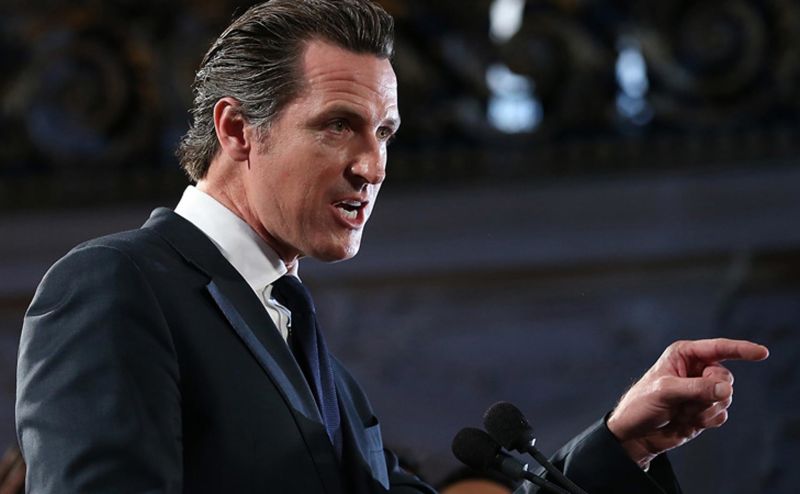But Cox leads among Republicans and has a 5-point edge over Newsom — 43 to 38 percent — among independent voters.
Baldassare said that, in general, independent voters in California seem to be fairly moderate and "they're not ideologues."
"There are things that they don't like about the Democratic and the Republican parties ... they don't like either party," he said.
Feinstein, who has represented California in the U.S. Senate for 26 years, is leading her Democratic challenger, state Sen. Kevin de León, by 16 points — 43 percent to 27 percent. But many Republican and independent voters say they're unhappy with their choice of candidates, and a full 23 percent of voters volunteered to PPIC that they will skip this contest on the ballot.
Baldassare said many of the voters who told PPIC they will not vote for a U.S. senator are Republicans.
"We believe that many of them will not vote in the U.S. Senate race because there are two Democrats," he said. "And when we exclude the people who say they would not vote, Feinstein's lead is 20 points — 55 to 35 percent."
PPIC also looked at how things are shaping up in the 11 congressional races deemed competitive by the nonpartisan Cook Political Report. In the aggregate, voters in those 11 districts slightly favor Republicans, 49 to 44 percent, but Baldassare said that doesn't mean the GOP will necessarily be successful in keeping those districts red.
"In those competitive House districts, when we break out those results we see a very closely divided electorate," he said. "The margin of error is such that it means it's going to be very, very close. Nobody has a particular advantage right now in those races. And it's probably going to come down to how many people turn out to vote, how energized the Democrats are, and whether there are issues that energize Republican voters."
The poll reveals the tightrope that Democrats have to walk in those races, finding that a vast majority of Democrats (76 percent) want a congressional representative that pushes back against the Trump administration, while a bare majority (51 percent) of independents say they want someone who works with the president.
That means Democrats trying to oust Republican incumbents have the challenge of energizing their party base while not alienating more moderate independent voters, Baldassare said.
"In those purple districts, it's not all about Trump and anti-Trump — it's more about issues that matter to voters," he said, citing the economy and health care as examples.
Baldassare said that Democrats running for congressional seats have to be mindful of the fact that their electorate may not see the race as all about Trump.
"Not all voters in Orange County or San Diego or other purple districts are thinking that's what this election is about," he said. "They might want different representation, but they also want someone that's going to make their lives better."
The poll, conducted in English and Spanish, has a margin of error of plus or minus 3.3 percent.
